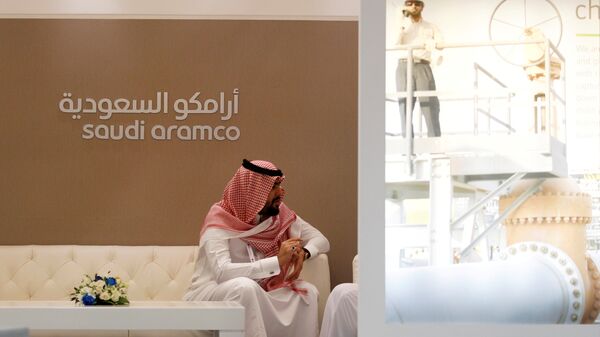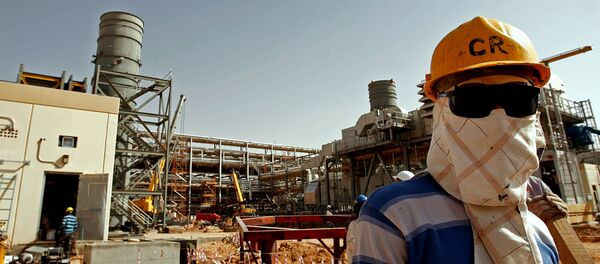In a television interview, Saudi Foreign Minister Adel al-Jubeir said the company was in "serious discussions" with the NYSE about listing the company on the Exchange.
"Our objective is to try to complete the IPO sometime in 2018. We are talking to a number of stock exchanges and investment banks and financial institutions — to see what is the best and most efficient way to go about it," he added
The IPO could well be the world's largest yet — if projections of trillions of dollars in market value come to pass, the US$25bn raised by Chinese ecommerce firm Alibaba in 2014 will seem comparatively trifling.
#Saudi Aramco's IPO is biggest shift in firm's history since 1980, when Saudi gov paid partners $1.5bn for their 40% https://t.co/8vae6rXahS pic.twitter.com/htHDbDu64P
— Petroleum Economist (@PetroleumEcon) March 24, 2017
If Aramco didn't opt for New York — London, Hong Kong and Tokyo would be likely alternative destinations. This quartet represents the stock exchange "Big Four" — listed companies therein have access to huge reserves of investor cash, and trading volumes are the highest in the world.
Nonetheless, Aramco's history arguably makes the company a good fit for a US listing — prior to its 1980s nationalization, it was owned by a consortium of US oil companies, and retain ExxonMobil governance structures, while many of its Saudi executives attended American universities. Additionally, the New York Stock Exchange's renowned bell-ringing ceremony, which inaugurates new listings and attracts media coverage the world over, could well be attractive to the pro-pageantry Saudis.
Bell ringing yesterday @NYSE New York Stock Exchange with the Medal of Honor Recipients! pic.twitter.com/6um3g2590G
— Medal of Honor (@CMOHfoundation) March 23, 2017
As a foreign private issuer, the company would also be exempt from many of the reporting requirements imposed on US companies, for instance the need to avoid selective disclosure of non-public information to analysts and investors.
Moreover, the company can use Saudi accounting standards and practices — although the 2002 Sarbanes-Oxley Act requires robust internal controls at any company listed in the US, with regulators extremely strict on the calculation of proven and probable oil reserves, and requiring an independent review process to test the figures.
Saudi Arabia's oil reserves have long been a closely guarded state secret, with published reserve estimates remaining unchanged for decades. For some time, analysts believe such transparency requirements would be a stumbling block to the company ever "going public" — the company is regarded as "famously secretive." However, Energy Minister Khalid al-Falih has said the kingdom will reveal the figures if necessary, and allow a third-party audit.
Other political concerns likewise convinced analysts for some time that an Aramco IPO would never be in the offing.
"If Aramco goes public, Saudi Arabia will face an enormous existential dilemma. The Saudi royal family's total control of Arabia's oil wealth is the root of all of its power, influence, and success," said Cyrus Sanati of Fortune in January 2016, who added the move would be regarded as a sign of weakness by Saudi Arabia's enemies.
Still, politics may yet prove a barrier to agreement — in particular, the move by families of 9/11 victims to sue the Kingdom for its alleged role in the attacks. President Donald Trump has attempted to smooth ruffled Saudi feathers over the fracas and pledged to overturn the Justice Against Sponsors of Terrorism Act, which facilitated the legal action. The President's efforts have not gone unnoticed — al-Jubeir has said Trump is "an exceptional human being…with vision," and the Kingdom "supports that."
Meanwhile, advocacy group Oil Change International has previously suggested Aramco's privatization would be a mistake, given oil prices remain at a nigh on historic low.
"It's not a smart economic move to sell off an asset when its value is at the bottom of the cycle. When governments are made desperate by low oil prices, they often make that mistake, giving foreign investors a bargain that well outlasts the commodity downturn," the organization said.
Moreover, OCI noted the Kingdom was a signatory to the International Convention on Settlement of Investment Disputes, which allows investors to challenge governments in secret tribunals, with any compensation awards enforceable by seizing the state's assets in any of nearly 160 countries.
"While Saudi Arabia is still a long way off addressing the role of its oil reserves in climate change, the threat of investor compensation claims would have a chilling effect if and when action is taken," OCI said.



